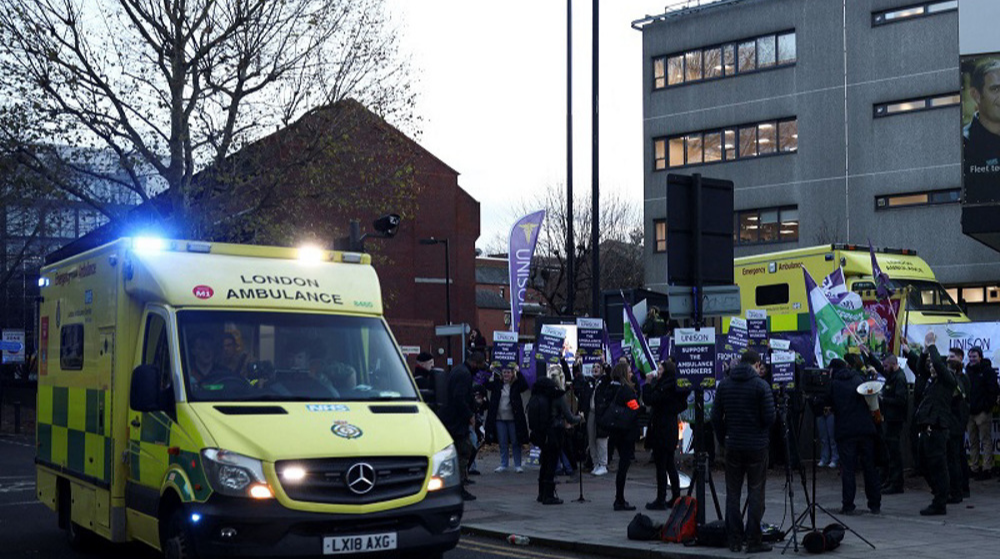
Tens of thousands of nurses from the Royal College of Nursing Union and ambulance crews have gone on an unprecedented strike, calling on the NHS for increased pay as well as better work conditions.
London, February 8 (RHC)-- Tens of thousands of nurses from the Royal College of Nursing Union and ambulance crews have gone on an unprecedented strike, calling on the NHS for increased pay as well as better work conditions.
They had warned during the previous strike that the next one would be their biggest yet, and they have kept their promise. Tens of thousands of nurses from the Royal College of Nursing union and ambulance crews are on strike, this time, together.
The chanting on the picket lines is not just about inflation busting pay rises but about the depressing state of the National Health Service as well. An ICU nurse, who has worked for the NHS for 10 years, explains why she thinks the system is in crisis: "Total underfunding, a lack of foresight, I think, politically and nurses really just being taken for granted for too long."
A new research reveals that a record number of more than 400 healthcare staff in the UK have left the NHS to restore their work-life balance over the past year. And that has meant tens of thousands of trained nurses either leaving the profession or working for the private sector in recent years.
The strikers are calling for the National Health Service to be kept alive, a system which is now on life support, and many in the medical profession believe that the deeper the crisis gets, the stronger the likelihood that privatization will be foisted upon them.
In the UK, the wave of industrial action across the country that is only gaining momentum in the wake of the government’s controversial new anti-union legislation. That's because while the NHS is at breaking point, private healthcare is flourishing, creating worries about a two tier system, one for the rich, who can pay their way, and another one, a subpar NHS, for everyone else.

